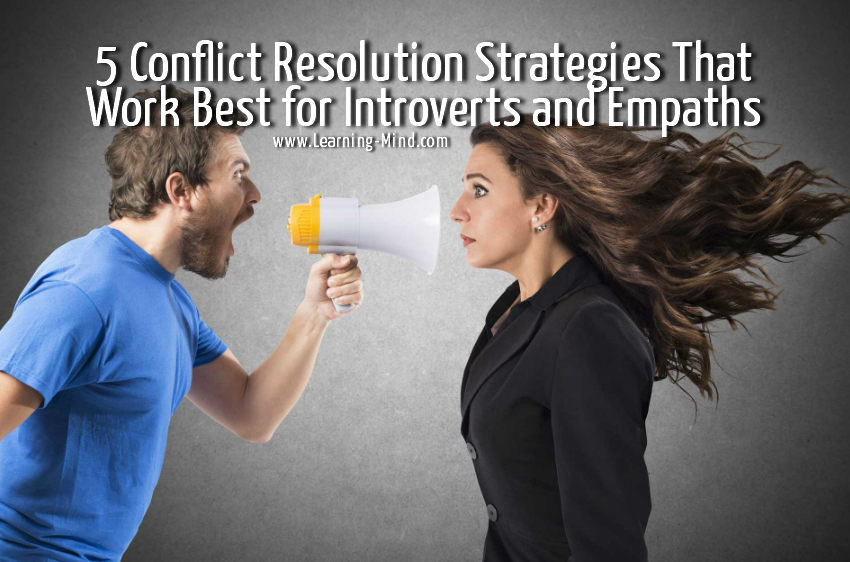
Conflict resolution strategies are never easy to find, but they are even harder for people who don’t like conflict. If you are an introvert or an empath, you probably know this very well.
Finding a way out of conflict can be difficult as an empath or an introvert, as neither deals with conflict very well. Empaths find conflict difficult, as they hate to upset another person. They feel guilt when they do and are likely to be a pushover in trying to resolve conflicts that arise, which can leave them feeling worse in the long run.
Introverts, on the other hand, struggle to deal with conflict because they do not have the kind personality to master conflict management. They shy away from conflict, which can leave the conflict unresolved and deteriorate important relationships.
The right conflict management strategies are vital in avoiding these situations. Remarkably, however, both of these personality types can learn to deal with conflict in similar ways.
They avoid confrontation, which people who hate conflict seek to avoid.
Talking calmly is the best way to resolve issues with people who don’t like conflict. Introverts do anything to escape and keep people from getting upset, which in turn upsets the empath. By talking calmly, both sides will feel more relaxed and communicative.
Take the time to sit in a neutral environment and talk calmly about what both parties see the issue to be. Introverts find it difficult to share their side of the story. By being in a relaxed place, both parties will be more relaxed and much more likely to communicate effectively.
When things get heated, it is difficult to walk away. This can be terrifying for the introvert, however, as they will quickly become intimidated and try to get away from the conflict as soon as possible. Take a bit of space from one another and give yourself time to calm down.
When you are calm and collected, you are able to communicate more effectively and without upsetting one another. Maintaining composure is vital for people who don’t like conflict to be able to communicate their needs and what has upset them.
In any conflict, both sides have wants and needs which must be met in some way. If needs are not clearly communicated, this cannot be done. When coming into conflict resolution, be clear about what you want or need from the other person. This will help the other person to understand the problem and possible ways of fixing it.
Try to be reasonable with any requests, but don’t be afraid to let the other know exactly what it is you need for the conflict to be resolved.
Empaths find it difficult to express what they need, as they can become more interested in how the other person feels. As an empath, it is important to be self-aware and understand that your needs are important too.
Remember that the other side in a conflict also has needs that they require to be met. Listen to the other person’s issues and requests of what they need and try to see things from their perspective. There are always two sides to any argument or conflict.
For introverts, it is easy to sink into your own feelings and you may not realize how much the other person is hurting. Empaths will be quick to listen to the other person’s perspective and needs, but introverts can find it difficult to have their mistakes pointed out to them. Conflict resolution is what is important, so try to be calm and empathetic.
Letting a conflict go is the most important thing for both empaths and introverts. If a grudge forms, both empaths and introverts will start avoiding the person they had the conflict with. When you reach a compromise and the conflict has been resolved, let it go and move on.
If the issue takes some time to let go, try not to create more conflict because of grudges. Continue with these conflict resolution strategies whenever the issue arises again and resolve things calmly. Don’t let things build up to the point of an argument, as these tensions will be quickly picked up by the empath and will make an introvert feel uncomfortable.
Everyone uses different strategies when it comes to conflict resolution. Finding the right strategy for people that don’t like conflict can be difficult because they avoid conflict in the first place. What is important when in conflict with an empath or an introvert is that you take the time to resolve things calmly and maturely.
Allow them their space to collect themselves and listen to their version of the situation. With a mutual understanding and respect, it will be much easier to end conflicts and move forward.
References: